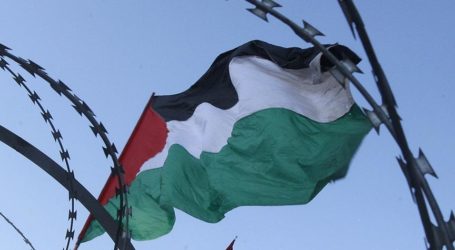UN Warns Two-state Solution ‘in Danger’

Bethlehem, 09 Rajab 1437/15 April 2016 (MINA) – The viability of the internationally-backed two-state solution is “in danger,” the UN said in a press release Thursday, citing culpability on both the Israeli and Palestinian sides.
The press release was issued by the Office of the United Nations Special Coordinator for the Middle East Peace Process (UNSCO) to announce their latest report to be presented next week to the Ad Hoc Liaison Committee (AHLC) at the bi-annual meeting in Brussels.
The report highlights the “worrying trend” of settlement expansion by Israel in the occupied West Bank, citing in particular the classification of new “state land” in March amounting to 2,342 dunams (580 acres) in the Jordan Valley, Miraj Islamic News Agency (MINA) reported, quoting Ma’an.
Israeli settlement watchdog Peace Now said Israel has not confiscated such large swathes of land for the purpose of settlement expansion since the pre-Oslo period in the 1980s, with recent moves indicating a clear change of policy.
UNSCO’s report also points to the widespread Israeli demolition campaign of Palestinian homes and livelihood structures, noting that the total demolitions by mid-April already exceeded the total recorded in all of 2015.
The UN most recently documented multiple demolitions on April 8 in the occupied West Bank that left 124 Palestinians homeless in a single day, 60 of them children.
Disunity among Palestinian factions
The report also attributed the deterioration of the two-state solution to disunity among Palestinian political factions, in spite of recent reconciliation talks held in Qatar between rival factions Hamas, Fatah, and other Palestinian groups.
“Palestinian factions have been unable to reach consensus on achieving genuine Palestinian unity on the basis of non-violence, democracy, and the PLO Principles – a crucial element for reuniting the West Bank and Gaza under a single, democratic, and legitimate Palestinian authority,” UNSCO said.
Tensions among Palestinian factions most recently came to a head with increasing criticism from Hamas and the Popular Front for the Liberation of Palestine (PFLP) of Mahmoud Abbas’ Fatah-dominated Palestinian Authority, saying that the PA has worked with Israeli authorities to quash resistance against the occupation.
UNSCO’s report also highlights the humanitarian crisis across the Palestinian territory, with “Some 1.1 million people in the West Bank and some 1.3 million in Gaza, over 900,000 of them refugees, need some form of humanitarian assistance in 2016.”
“The report stresses that the human rights situation degenerated with the dramatic rise in clashes between Palestinians and the Israeli Security Forces (ISF) in the West Bank, including East Jerusalem, increased instances of punitive measures against families of alleged perpetrators of attacks, and administrative detentions.”
More than 200 Palestinians have been killed by Israeli forces and settlers since a wave of unrest spread across the occupied Palestinian territory in October, marked by small-scale attacks carried out by Palestinian individuals — predominantly on Israeli military targets — which have left nearly 30 Israelis dead, with the majority of suspected Palestinian attackers shot dead on site.
Families of the Palestinians accused of carrying out attacks against Israelis have faced punitive housing demolitions and have seen the bodies of their dead being withheld by Israeli authorities, in what rights groups have condemned as collective punishment.
The Middle East Quartet envoys arrived to Jerusalem at the end of March to discuss preparation of UNSCO’s report.
The Quartet — established in 2002 to mediate the peace process — is one of several international actors who have attempted to weigh in on ongoing violence in the occupied Palestinian territory but have ceded little more than verbal condemnations of both Israeli and Palestinian leadership.
Successive attempts at peace negotiations between Palestinian leadership over the decades are largely seen by the Palestinian public as having failed to bring Palestinians any closer to an independent state, with many believing the talks have instead prolonged the Israeli military occupation. (T/R07/R01)
Mi’raj Islamic News Agency (MINA)





